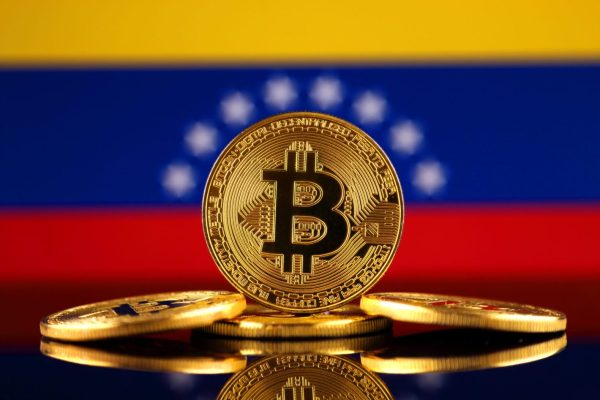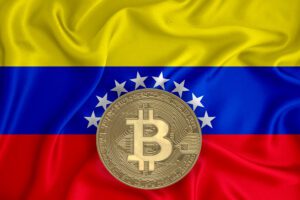
Physical version of Bitcoin (new virtual money) and Venezuela Flag. Conceptual image for investors in cryptocurrency and Blockchain Technology in Venezuela.
The decisive impulse to bet on cryptocurrencies so determined and strong is paid to the loss of purchasing power of the Venezuelan. In short, Venezuela has made the decision to convert to Bitcoin, with one clear intention: that is, to be able to combat the problem of inflation, but also the one related to the sanctions that have been applied by the United States.
The 20% Fee on Transactions in Digital Currencies
The government of Venezuela, in the month of February, gave its ok to the introduction of a new tax law that has a very specific goal, which is to apply a new tax to the various operations carried out using cryptocurrencies. It is a project of the law, the objective of which, as they understood from the outset, those who study where to buy cryptocurrencies, was from the first moment of intervention and tax the most important and substantial financial transactions in digital currencies like for example Bitcoin.
The Venezuelan government gave the go-ahead, and then, in February. Thus, the bill became law in effect, with companies and individuals in Venezuela, which can get to match up to 20% of the amount related to transactions that are carried out in digital currencies or foreign currency. The intent of the government was to provide for the collection of a percentage of between 2% and 20% on transactions denominated in currencies other than the currency fiat national or cryptocurrencies official, or the Petro.

In that case, the sanctions had the clear intention to proceed with a crackdown, and the intent has always been to try to subvert the system. Attempts in question, however, did not go to a good end, from the moment that the government led by Nicolàs Maduro Moros, that is, the president has been in office 2013 of the Bolivarian Republic of Venezuela, and not even behind the move of the Use of arms embargo imposed against the country of Venezuela.
The system was reversed in 2019 and it does not seem that there are conditions to do it in this period, especially at a time when, finally, the population is trying to counteract more effectively the effects of the sanctions that it has to be said, which have been made a bit more to read from the part of the administration of the stars and stripes of Joe Biden following the invasion of Ukraine, which is operated by Russia. And penalties as were relaxed? Pointing inevitably to digital currencies.
One of the Countries With The Largest Number of Holders
According to those who are the main statistics, Venezuela is located in eighth place in terms of the number of holders of digital currencies. The percentage of 18%, just behind other nations such as Ghana or Vietnam. India guides this particular ranking, with 29%, according to what has been reported from an investigation carried out in this month of August by the company to the Finder.
Another country tied to Latin America that can boast a large number of people who have adopted digital currencies is undoubtedly Brazil which ranks just behind Venezuela (17%). A little more back Mexico and Argentina, both with 13%, and Colombia with 15%.
The digital asset on which Venezuela has been shown to rely more strongly corresponds to Bitcoin, which precedes the ETH. Another statistic is very interesting: in the whole of Latin America, Venezuela is the country that has adopted the quantitative lowest ETH. By shifting the focus on the adoption of digital currencies for the genre, it is worth noting the significant difference in Venezuela, just like all the other Countries, holders of cryptocurrencies men and women.
